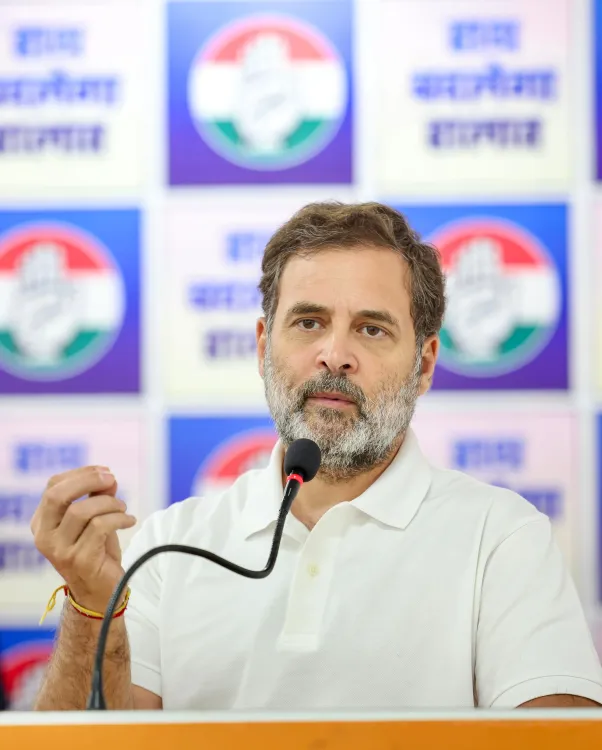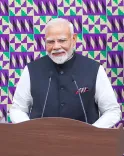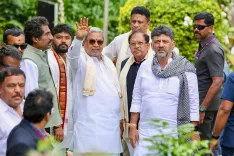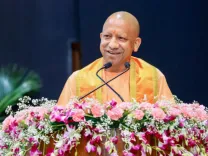Is There Distrust of Indian Voters? NDA Critiques Rahul Gandhi Over Bihar Voter Roll Revision

Synopsis
Key Takeaways
- The Special Intensive Revision (SIR) of electoral rolls is being contested by opposition parties.
- The NDA has launched a counterattack against Rahul Gandhi's criticisms.
- Concerns about transparency and fairness in the electoral process have emerged.
- Accusations are being made about undermining public trust in the electoral system.
- Leaders urge for reforms that protect voter rights.
Patna, July 3 (NationPress) Following a strong protest from a coalition of opposition parties against the Election Commission's initiative to conduct a Special Intensive Revision (SIR) of electoral rolls in Bihar in preparation for the Assembly elections, the NDA retaliated sharply, accusing Congress MP Rahul Gandhi of undermining constitutional bodies and expressing distrust towards Indian voters.
The opposition, represented by an 18-member INDIA bloc delegation consisting of 11 parties, including Congress, RJD, CPI, CPI(M-L), and Samajwadi Party, engaged with ECI officials at Nirvachan Sadan on Wednesday.
They claimed that the EC's decision was both abrupt and poorly timed, potentially affecting marginalized communities and jeopardizing the integrity of the elections.
Leader of Opposition in the Lok Sabha, Rahul Gandhi, amplifying the opposition’s position, also called for the release of consolidated, machine-readable digital electoral rolls and CCTV footage from polling stations in Maharashtra, citing concerns over transparency.
In response, Bihar Minister Nitin Nabin criticized Gandhi for questioning the integrity of both Indian voters and the Election Commission.
"Rahul Gandhi is attempting to mislead the citizens of this nation. He does not trust Indian voters; rather, he trusts those arriving from Bangladesh and other regions. If he genuinely had faith in the people of India, he wouldn't cast doubt on them," Nabin told IANS.
Bihar Minister Santosh Kumar Singh also reproached Gandhi for "not respecting a constitutional body" and for misrepresenting the voter list revision process.
"The voter list revision is currently in progress. According to the Indian Constitution, an individual can vote only in one constituency. If a person is deceased or has a duplicate entry, their name is eliminated—this is the EC's duty," Singh informed IANS.
"If Rahul Gandhi fails to grasp this, he should enroll in PM Modi’s class and learn. He continues to voice unfounded concerns instead of placing trust in the EC and the Constitution," Singh added.
BJP national spokesperson Shahnawaz Hussain accused Gandhi of obstructing the EC's operations.
"The voter list is undergoing revision. Why is Rahul Gandhi opposed to it? Wherever Congress prevails, the EC is acceptable. But if they face defeat, the EC becomes corrupt in their view," he told IANS.
"Rahul Gandhi must cease blaming others for his party’s shortcomings. He desires the EC to issue him a certificate of being the most popular leader, but such validation comes from the people, not institutions. His part-time politics will not suffice to challenge PM Modi or the BJP," Hussain added.
Senior JD(U) leader K.C. Tyagi also commented, stating to IANS, "Rahul Gandhi has conceded defeat. That is why he is making such allegations. The EC has consistently endeavored to ensure precision in the electoral process."
However, opposition leaders have also raised concerns about the timing of this announcement, noting that no mention of a Special Intensive Revision had been included in the EC's public communications over the last six months.
The delegation alleged that for the first time, the EC was requesting voters to provide multiple documents, a strategy that could result in the exclusion of impoverished, marginalized, and rural populations from the voter rolls.
The leaders called upon the Commission to postpone the revision endeavor and ensure that any necessary electoral reforms are executed in a way that respects voter rights and maintains democratic integrity.





